From Hunger to Hope: A Brave Girl Named Norah
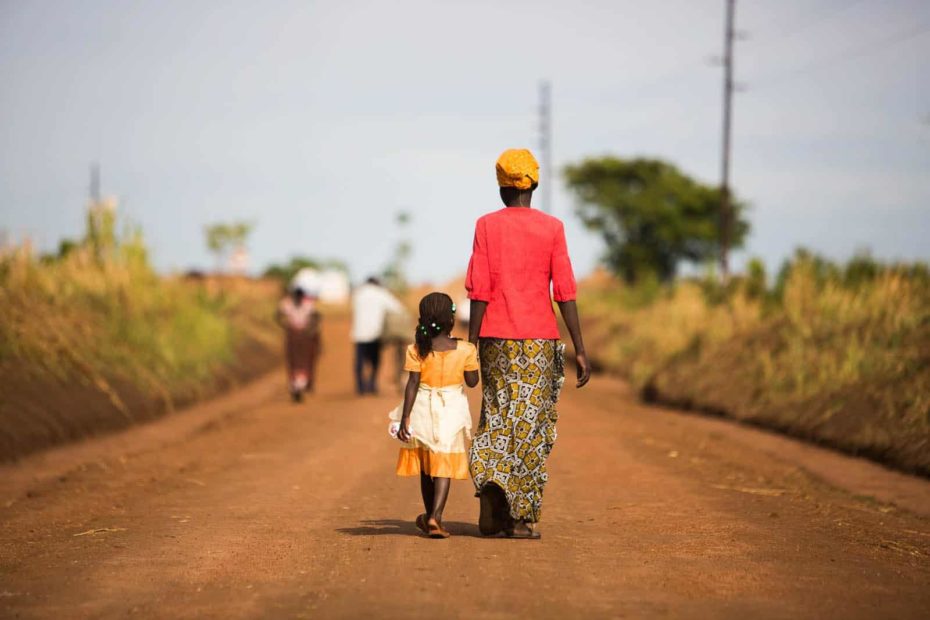
Norah’s mother, a hairdresser, and her father, a soldier in the Rwandan army, worked hard to provide for their daughter. But when war and genocide tore through Rwanda in 1994, it also ripped a hole straight through Norah’s heart.
Continue Reading ›How a Compassion Blog Story Helped Reunite This Rwandan Family
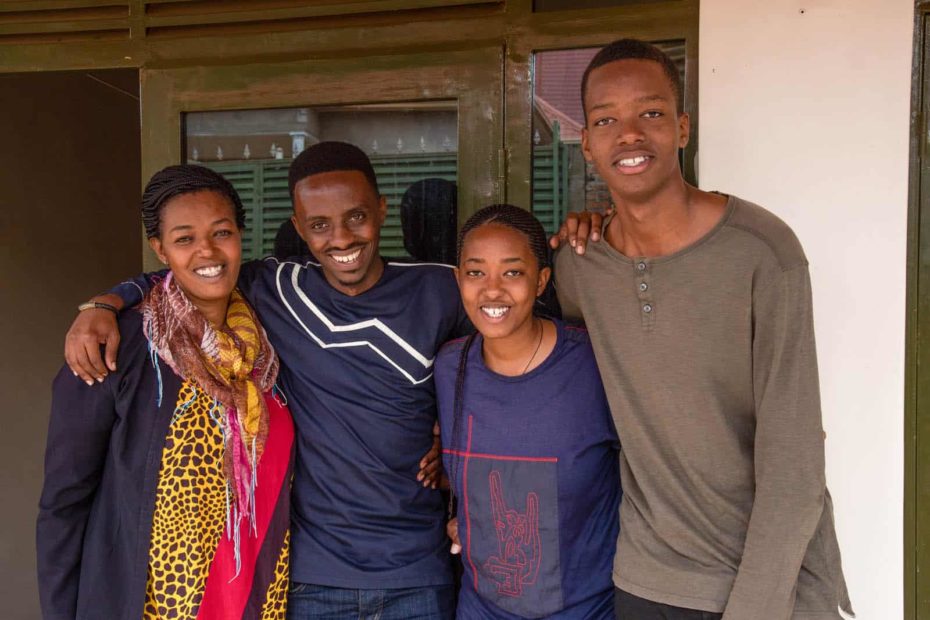
“I was in church when I realized I had 15 missed calls,” Christian shares. “My phone had been on silent mode. When I stepped out of the service to call and find out why someone had made 15 calls in the space of seven minutes, the person on the other side of the call told me they were my uncle from my father’s side of the family.”
Continue Reading ›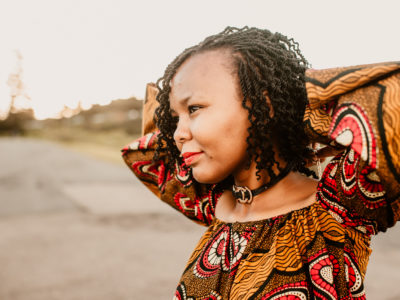
25 Years After Genocide in Rwanda: 3 Astonishing Stories of Forgiveness
It’s been 25 years since the genocide against the Tutsi in Rwanda. How does a country move forward from such trauma? Though the cruelty and pain of this tragic event are unimaginable, the Rwanda of today is unrecognizable from the horror of ’94. Read the moving stories of three Compassion alumni choosing radical forgiveness instead of hate.
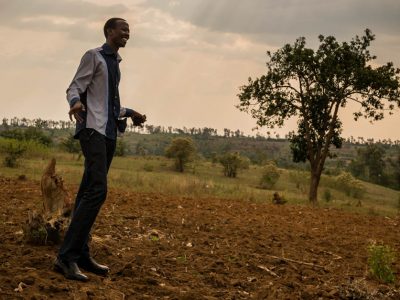
What Is Not Visible: A Genocide Survivor’s Redemptive Journey [VIDEO]
Methode endured the Rwandan Genocide when he was 6 years old. Now over 20 years later, he recounts his journey through the heartbreaking loss of his family, his pain and bitterness, and the ultimate forgiveness of those who killed his family.
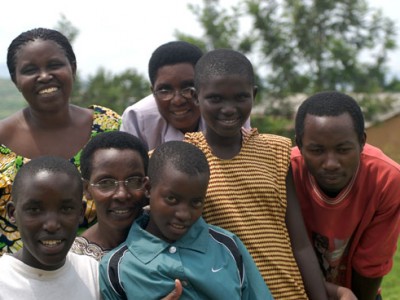
Healing Rwanda’s Hurting Children
20 years ago images of the Rwandan genocide horrified us. Today, there are new images to be seen in Rwanda.
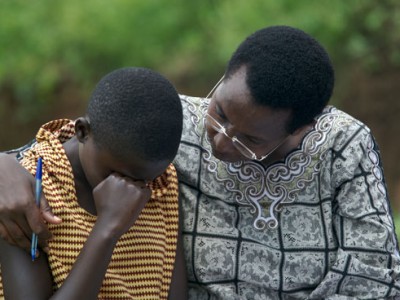
Rwandan Genocide: Where Were God’s People?
At the time of the Rwandan genocide in 1994, Gary Haugen, a senior trial attorney for the U.S. Department of Justice, was given an assignment to serve as the Officer in Charge of the U.N.’s genocide investigation in Rwanda.
He had seen a lot of injustice in the past, working to combat human rights abuses around the world. And in Rwanda, he stood amid it. He led a team in gathering evidence against those who perpetrated the genocide.
He didn’t just fight a legal battle from afar; he stood at the sites of mass murder and mass graves, and looked into the ugliness of this world.
And his response to it was quite surprising to me.
When you are standing in a mass grave in Rwanda, the question that came to my mind was not the question that was coming to everyone else’s mind perhaps. I’ve had people ask me, Where was God in the midst of all of this?’ But I could sense, at least from Scripture, what I knew of my heavenly Father, was that I knew where God was: He was right in the midst of all that incredible suffering. The more relevant question for me was, ‘Where are God’s people?’
What I also saw so clearly was the biblical mandate, because when you go through Scripture with an eye for that, all of a sudden there are these very clear commands: Micah 6:8, ‘He has told you, O man what is good and what the Lord requires of you, but to do justice, to love mercy, to walk humbly with your God,’ or Isaiah 1:17, ‘Seek justice, rescue the oppressed, defend the orphan, plead for the widow.'”
– Excerpted from RELEVANT magazine, “A Call to Justice,” March/April 2007 with permission.
Rather than raging at God, like I sometimes feel tempted to do, Haugen knew that this was a matter for the church. It was our responsibility to do justice, to rescue the oppressed, to plead for the widows and orphans.
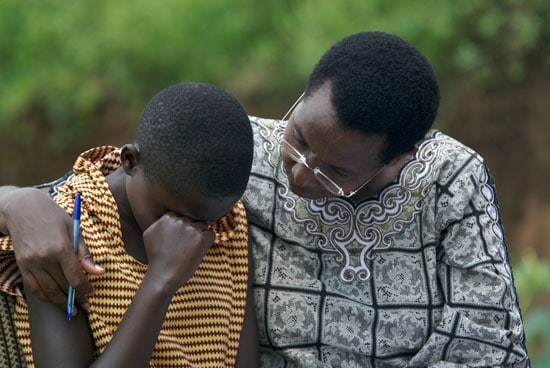
Laurent Mbanda is the Vice President of the Africa region for Compassion and also a native Rwandan. He wrote the book, Committed to Conflict: The Destruction of the Church in Rwanda, about the church in Rwanda and how it was involved in the genocide.
Rwandans had a common saying: ‘God spends the day somewhere else, but spends the night in Rwanda.’ To many, God left Rwanda on 6 April 1994 and did not come back until the final defeat of the Rwandan army by the RPF soldiers.
But not only did God seem to have left, some church leaders seemed to have allowed, blessed and even participated in the slaughter.
According to Mbanda, a history of prejudice and political involvement in the Rwandan church, dating back to Belgian colonial times and early Christian missionaries, set the stage for the unthinkable. Where were God’s people in the Rwandan genocide? Unbelievably, some were right there, supporting it.
What did Haugen do in response to what he saw?
I would have despaired. But fueled by what he saw, Haugen knew what he must do. He knew it was the church’s responsibility, our responsibility, not to wink at the injustices of the world, but to stop them. He founded the International Justice Mission, an organization that secures justice for victims of slavery, sexual exploitation and violent oppression in 12 countries around the world. This organization partners with us to help protect children who might not otherwise have someone to speak up for them.
What is your response when you read about the ugliness of the world? Do you want to close your eyes or just despair? It sure is tempting. But rather than giving up, Haugen went to the Scriptures to see what God’s call was on him, and he obeyed. He is now mobilizing the Church to be the ones who don’t look away, but who show up when the world needs it most.
Photo by Phoebe Graves
We originally published this post on April 6, 2009, the 15th anniversary of the genocide in Rwanda.
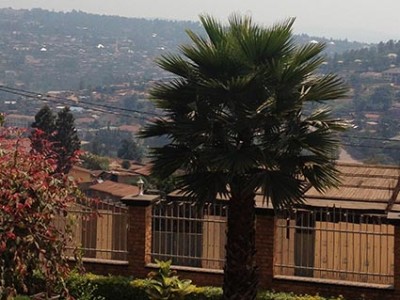
But Then, We Had Compassion
Irene and her country, once torn apart by the evil of genocide, now rise from destruction with songs of praise.
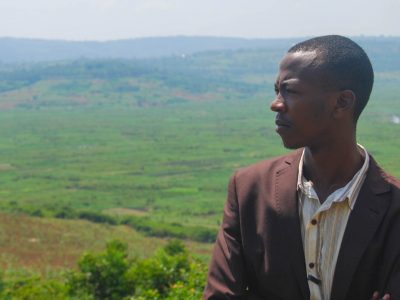
Finding Forgiveness After the Rwandan Genocide
Compassion Alumni Methode was 6 years old when he witnessed the 1994 Rwandan genocide, a systematic massacre of more than 1 million people of the Tutsi ethnic group.
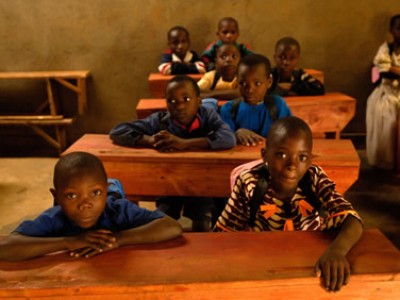
Ministry Highlight: Rwanda
We began our ministry in Rwanda in 1980 with the Child Sponsorship Program. In 2008, we started the Leadership Development Program, and the Child Survival Program followed in 2010.
Rwandan Genocide: Hope Lives
“I know there is a God because in Rwanda I shook hands with the devil.” – Major General Romeo Dallaire, Force Commander, United Nations Mission Assistance in Rwanda.
But where evil is strong, hope is stronger.
I’m an employee at Compassion. I work as an assistant for our International Program Communications Director. I love my job and I love working for Compassion.
However, for years my heart has ached to travel to East Africa. I wanted to see firsthand the children that haunted my dreams and now consume my days as I work to help release children from poverty.
Last year, my boss agreed to let me take a two-month leave of absence to work at a Rwandan orphanage. I just got back a couple weeks ago.
While in Kigali, I experienced more hope and more devastation than I thought possible. But it’s because of Compassion that I am able to bring you this story about love, hope and sorrow in Rwanda. About some orphans, some widows and some abandoned children who when they have nothing left, cling to Jesus. In the midst of extreme poverty, they choose hope.
Rwanda. It seeped into every part of me. The only phrase that seems appropriate for this country is “Devastating Beauty.”
In Kigali, I saw more beauty than words can express. However, in some of the same moments, the realities of poverty and sickness overwhelmed and haunted me. All I know is that it profoundly changed me.
Like many 25-year-old girls in America, before I left for Rwanda, I attempted to define some characteristics of young men of integrity. In Kigali, I found examples of those men.
Beauty From Ashes
If you pick up a dictionary and thumb your way through the pages to find the word “genocide,” this is what you’ll read: “The deliberate killing of a large group of people, especially those of a particular race or ethnic group.”
We have that word in our vocabulary. And somewhere, at some point in history someone said, “What name will we have for the deliberate mass killing of people?” We needed a word for it because such a thing was taking place.
It completely unravels my nerves, but not as much as my ignorance does. In a lot of ways evil, for me, is something I have heard of. Something I have learned about. But for so many it is a memory, an experience. Some of those people live in Rwanda and have come intimately close to witnessing pure hatred.
My lack of knowledge took a back seat in college when I truly began to discover so many horrific events that I had heard of at one time, maybe on the news or seen as a headline, but was never thoroughly introduced to what had taken place.
I watched documentary after documentary, movies based on true events, read history books … I was like a sponge soaking it all in, attempting to wash away my ignorance, trying to grasp how such things had even taken place.
How can we be so capable of such evil? (more…)
Rwandan Genocide: 15 Years Later
In 1994 I was 16.
I was in the midst of my self-absorbed teenage years – a time in my life when nothing seemed as important as what kind of clothes I was wearing, and my daily mood was dictated by whether my current crush had said “Hi” to me in the hallway between classes that day. I was the center of my attention.
I distinctly remember the moment that God took my focus off of me.
Throughout my childhood, my mom subscribed to Time Magazine. There were always a few copies lying somewhere near the couch and occasionally I would pick one up and casually leaf through it.
One day, in May, I picked up a magazine with this cover …
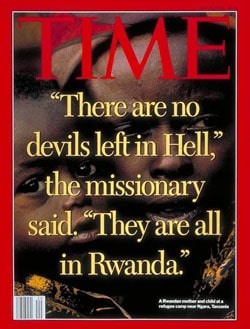
I proceeded to read the article, both fascinated and horrified by the words I was reading. As I looked at the gruesome pictures, God did a major work on my heart.
My focus suddenly shifted from myself to those living through the nightmare happening in Rwanda. I was at once both distraught about what was happening in Rwanda and heartbroken for my own self-centered worldview. My world – my concerns, my interests, my dreams, my prayers – suddenly seemed so trivial in comparison.
That was the first time I remember thinking about people outside of the world I knew. I didn’t realize that God was using that moment to plant seeds in my heart – seeds that would eventually bear fruit in my choice of career, where I give my money, and how I live my life.
Fifteen years later I still haven’t forgotten that day or those images.
Elie Weisel, a Jewish Holocaust survivor, said: “The opposite of love is not hate, it’s indifference.”
Even though the genocide happened 15 years ago, we must never allow ourselves to fall into indifference. The images can still have a profound impact on many lives.
Pictures tell stories in ways that words never can. So here is the story, 15 years later…
How did the genocide affect your life? Did it alter your view of God? Did it change your perspective on injustice? Have you explained to your children what happened?
Photos and slideshow by Chuck Bigger, one of God’s biggest blessings to Compassion.
If you have difficulty viewing the slideshow in this post, you can also check it out in Flickr.Upload your photos to our Flickr group. Show us how you see poverty.


